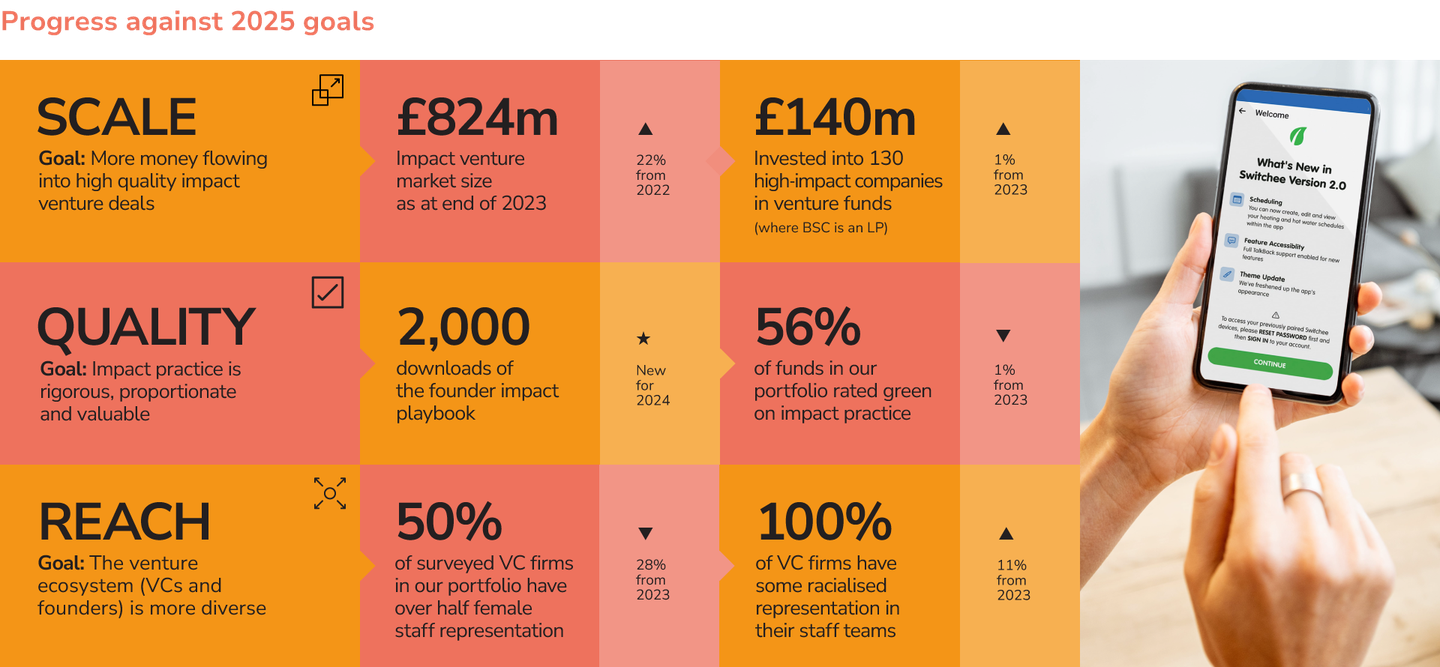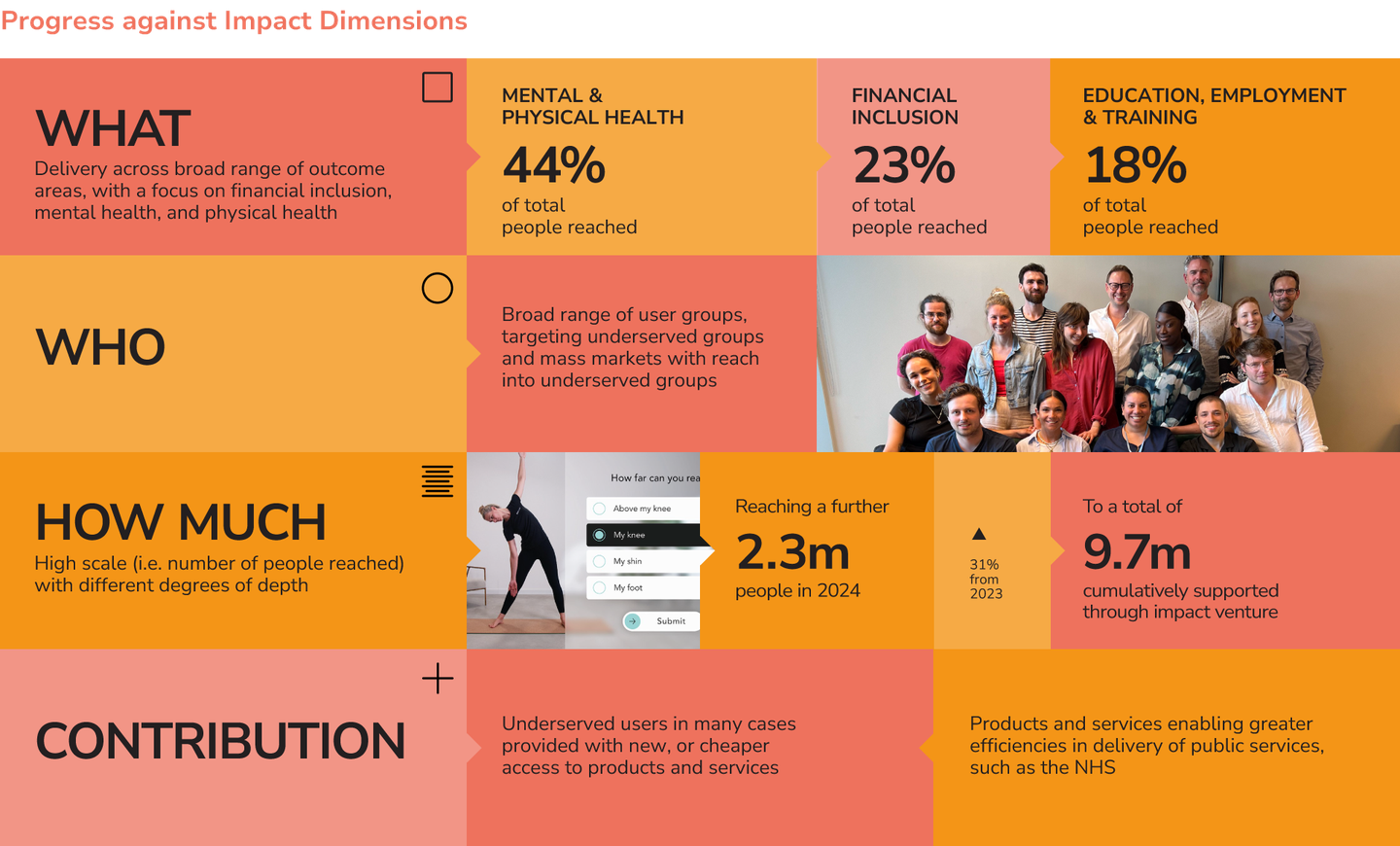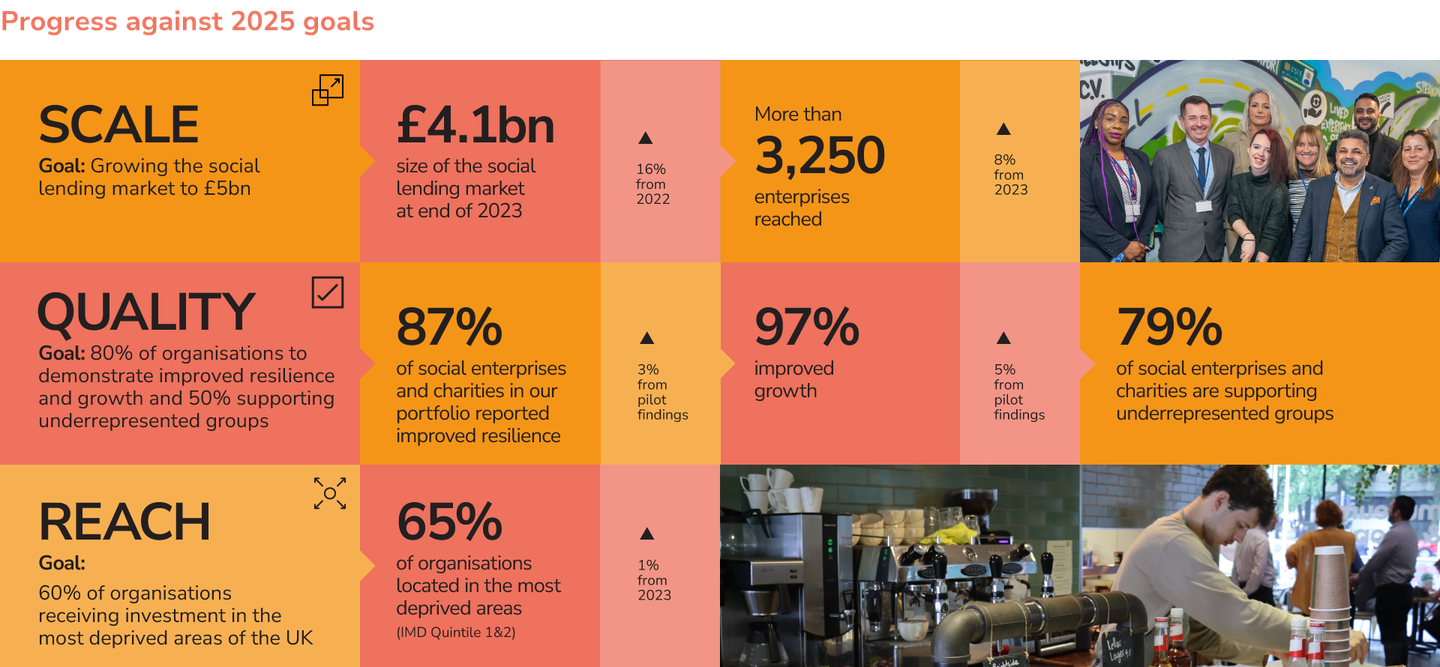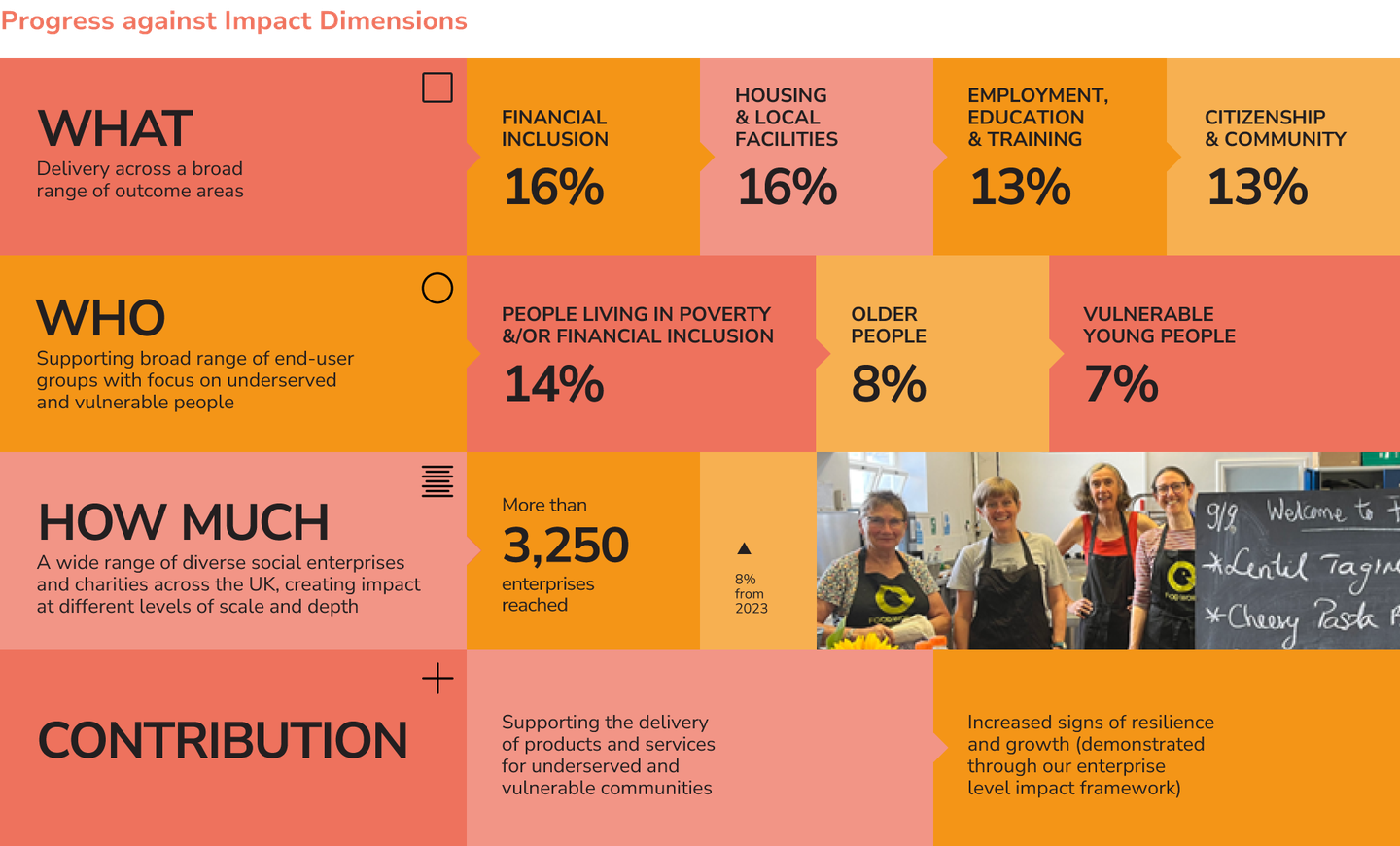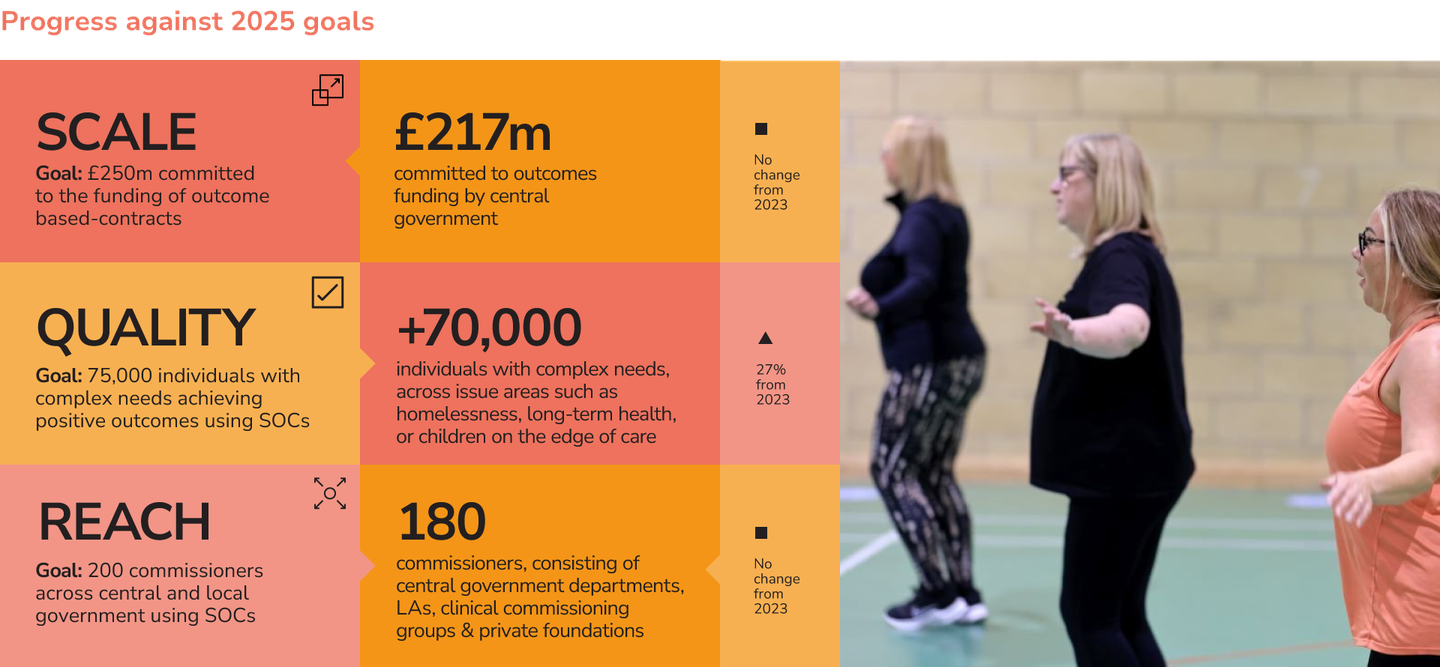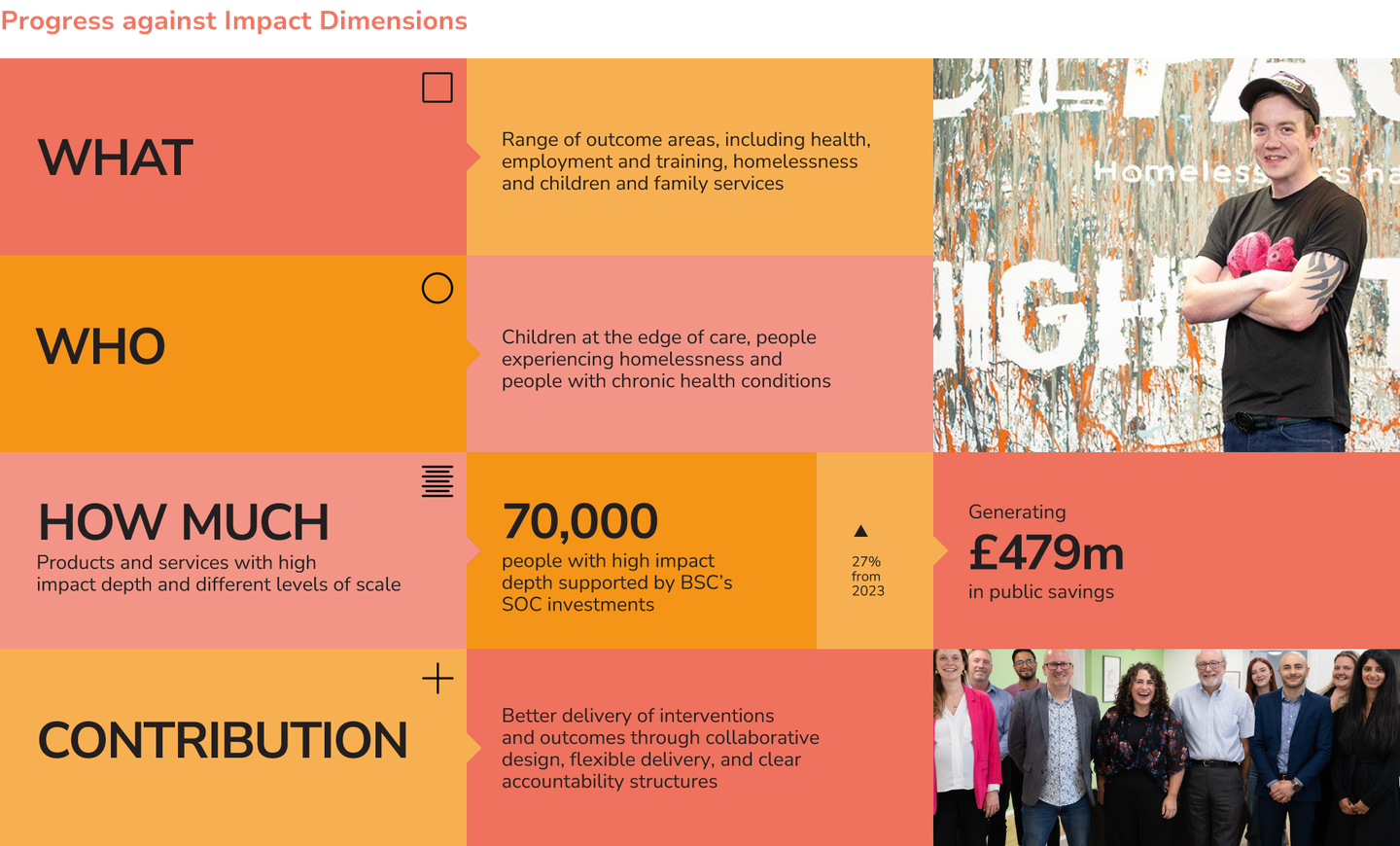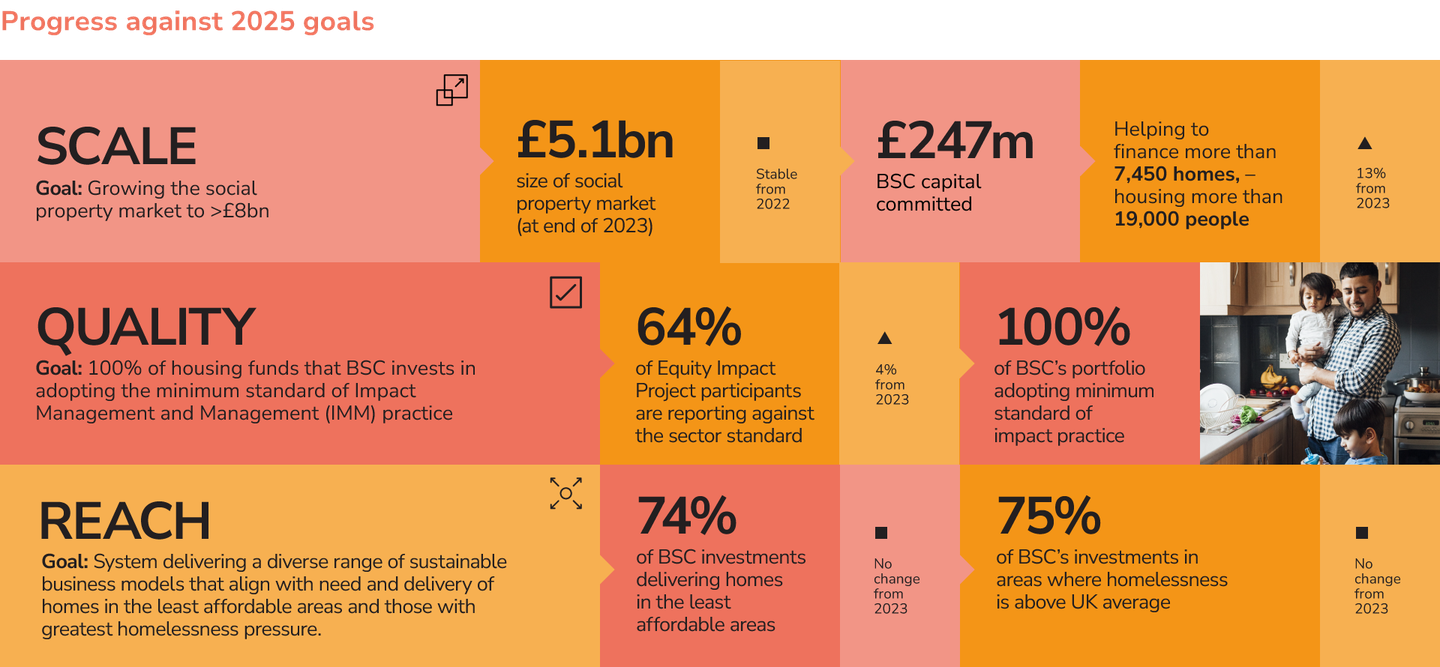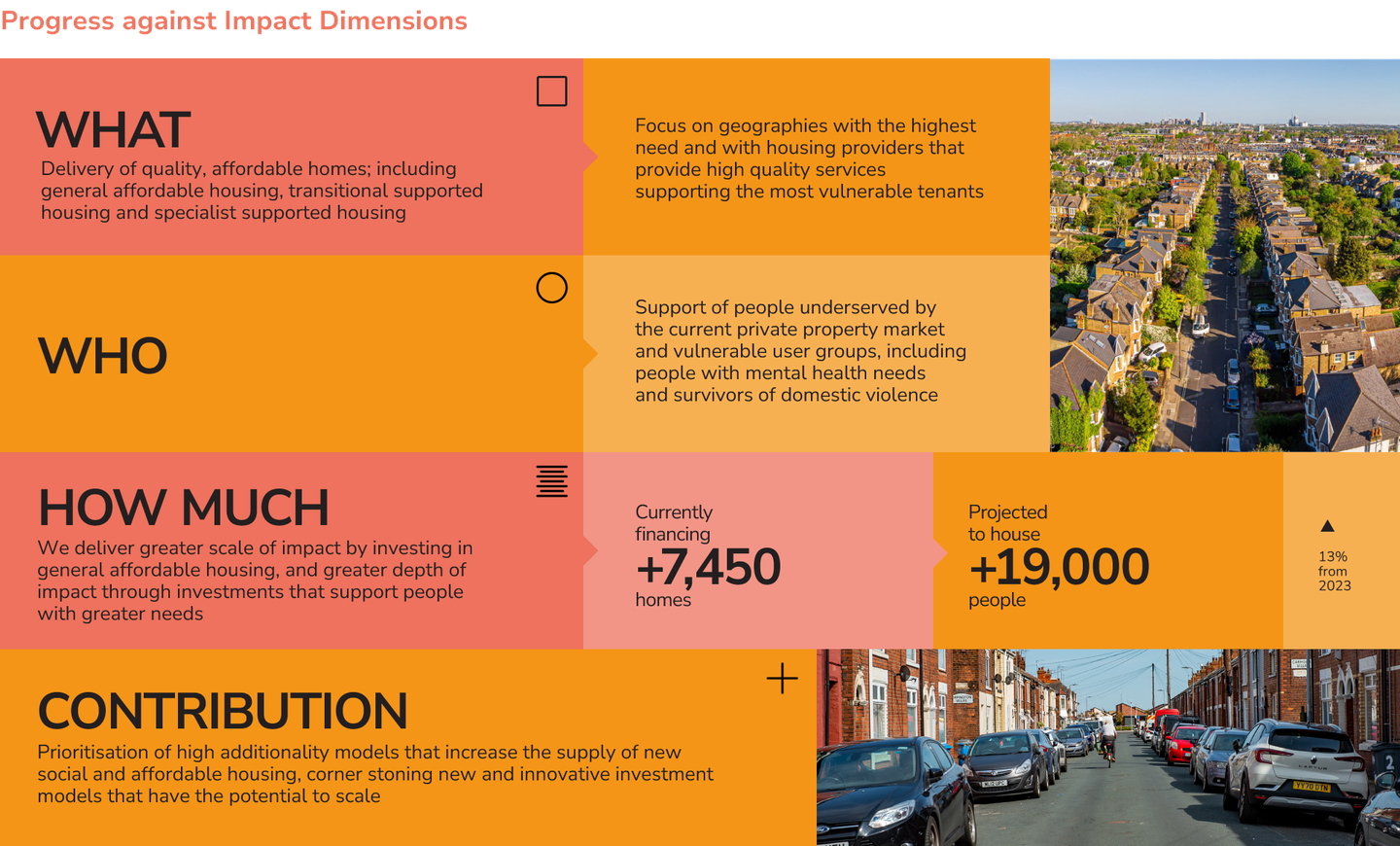Building the Market for Social Impact Investment
To help lay the foundations for a thriving social impact investment market, we focus on four key areas for investment into UK social issues as part of our 2025 strategy: impact venture, social lending, social outcomes contracts (SOCs) and social property. We refer to these areas as ‘market systems’. Find out more about our approach to investing.
2024 marks the penultimate year of our current strategy, and we are pleased to report significant progress against our impact goals.
We measure our impact progress against the Impact Frontier’s Five Dimensions of Impact to provide an overview of the impact that our portfolio is currently contributing to and progress we have made since 2023.
Fund Manager Spotlight:
Ascension Fund III
This year we invested in Ascension Fund III, achieving a first close of £17 million with co-investors including Esmee Fairbairn Foundation and housing association, Place for People. Ascension Fund III is a pre-seed/seed stage venture fund aiming to reduce social inequality by investing in scalable tech businesses that tackle the Cost-of-Living Crisis through three key themes: increase income opportunities; decrease costs of essential goods and improving access to healthcare.
Impact Risks

Learnings: AI impact opportunities and risks
Artificial Intelligence and machine learning investments are growing rapidly. It is increasingly clear that AI will shape our world in the coming years and that Venture Capitalists (VCs) are increasingly investing behind AI. AI is also increasingly becoming part of the BSC underlying portfolio, with investments such as Flok Health and Juniver mentioned in this report. This coming year we are commencing a research project in partnership with VentureESG, building on previous work around responsible approaches to investing in AI and how AI can help us move the needle on major social and environmental issues. One of our key learnings has been to see how VCs are engaging with AI. While we acknowledge that it is still early days, we are observing three distinct approaches emerging:
- Those assessing impact potential using existing impact frameworks with some adaptation for AI solutions.
- Those assessing mostly the risk dimension of AI and drawing on responsible investing / ESG-oriented frameworks.
- Those doing minimal assessment of impact potential or impact risks associated with AI.
Fund Manager Spotlight:
Charity Bank
Charity Bank is a social bank dedicated to providing financing to UK charities and social enterprises. Our approach to supporting social banks is rooted in the critical role they play in the social investment market, intermediating between retail investors and charitable borrowers. To date, we have invested £15.5 million in Charity Bank as regulatory capital alongside other shareholders and £35 million in a co-investment facility, to support them to expand their loan portfolio and scale their positive impact.
Impact Risks

Learnings: leveraging partnerships
Since 2012, we have learnt the value of long-term partnerships to successfully move towards achieving our impact goals.
To secure future capital for blended finance, we worked with key partners to position the Community Enterprise Growth Plan as a vital response to the new government's mission’s agenda. By speaking with one voice, navigating political changes, and demonstrating the evidence and need for investment, we secured £87.5 million in subsidies via the Dormant Accounts Scheme.
Additionally, we expanded support for Community Development Finance Institutions (CDFIs). The launch of the Community ENABLE Funding (CEF) programme by the British Business Bank in November 2024 will support up to £150 million of lending over the next two years and the two-year extension of the Growth Guarantee Scheme will enhance access to capital and help CDFIs achieve sustainability and scale. This success involved playing diverse roles: collaborating with investors to showcase potential and partnering with sector bodies such as Responsible Finance and stakeholders, including the British Business Bank, to advocate for policy interventions that support capital to flow into communities across the UK. A key factor in these successes has been the development of tailored offerings and targeted communication strategies for different groups, including government bodies, investors, market-building partners, and intermediaries.
Spotlight:
ATQ Report Update
In 2024, we commissioned ATQ to refresh their independent 2022 review of the value of UK Social Outcomes Market to date, based on the latest available market data and various methodological improvements. The latter considering the value of outcomes that would have likely been achieved without the funded interventions.
Impact Risks

Learnings: influencing government
To effectively mobilise government support for SOCs, we have learned to adopt a comprehensive approach, building awareness among key politicians and their advisors, and fostering understanding and knowledge of SOCs across civil service departments. Focusing on political engagement, without sufficient attention to the civil service, can lead to challenges regarding the actual implementation of SOCs. This is illustrated by the Evaluation and Pilots Fund, announced in the 2023 Spring Budget, aimed at exploring methods to help people return to work. Despite political engagement with Treasury and Treasury's guidance highlighting the impact potential of SOCs in this area, there was limited uptake within the civil service in terms of proposing service delivery leveraging SOCs.
Fund Manager spotlight:
Octopus Affordable Housing Fund
In December 2023, BSC invested £10 million into the Octopus Affordable Housing Fund’s £60 million first close, alongside another LGPS investor. The fund focuses on delivering high-quality affordable homes with a strong emphasis on energy efficiency. It also addresses fuel poverty through initiatives like 'zero energy bills' homes, which guarantee tenants will not pay energy bills for ten years.
Impact Risk

Learnings: driving social and fiscal value
More than 100,000 families, including 130,000 children in the UK, are living in poor quality temporary accommodation, often without access to basic washing and cooking facilities.
The research we commissioned with Alma Economics, and Resonance showed that by using impact investment, Resonance Homelessness Property Funds can generate an estimated £312 million in public financial savings and £143 million in wellbeing benefits over their lifetime (2013-2035), totalling £455 million in social value. This will be achieved by providing 3,300 individuals – including 1,600 children at risk of homelessness – with stable, high-quality housing.
We believe the findings show that there is a better way for Government to support families out of homelessness, while saving millions for taxpayers on temporary accommodation costs. We estimate a £100 million grant from government combined with private investment could quadruple the projected impact over the next ten years, providing housing for 23,750 people and save £1.1 billion for the public purse on homelessness. As a result, we are calling for the government to reallocate a larger proportion of its existing spend to further scale initiatives like this, which enable taxpayer funds to go further.
